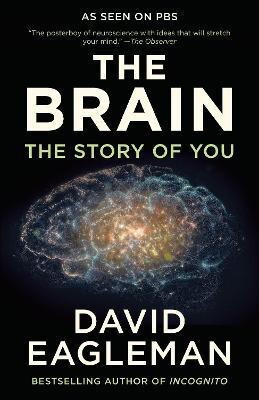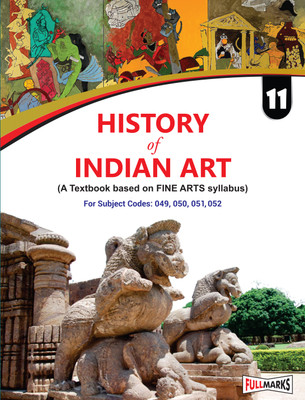
Ctet & Tets for Class 6 to 8 Science & Pedagogy 2020 (English, Paperback, unknown)
Share
Ctet & Tets for Class 6 to 8 Science & Pedagogy 2020 (English, Paperback, unknown)
4.3
203 Ratings & 13 ReviewsSpecial price
₹201
₹215
6% off
Coupons for you
T&C
Available offers
T&C
T&C
T&C
T&C
Delivery
Check
Enter pincode
Delivery by29 Apr, Tuesday|Free
?
View Details
Highlights
- Language: English
- Binding: Paperback
- Publisher: Arihant Publication
- Genre: Education
- ISBN: 9789324195272, 9789324195272
- Pages: 278
Services
- Cash on Delivery available?
Seller
Description
Robert Stenberg once said, �There is no Recipe to be a Great Teacher, That�s what, is unique
about them�. Every teacher has their own way of teaching who delicately shapes
impressionable minds and molds it into a vessel that defines perceptions and ambitions that
impact to the large part the society
Central Teaching Eligibility Test or CTET is the national level examination that is conducted to
recruit the most eligible candidates as teachers at Primary and Upper Primary Levels. It is held
twice in a year in the month of July and December. The exam is divided into 2 Papers, As per
the CTET 2020 Exam Pattern, Paper -1 is for the Classes 1-5 whereas Paper � 2 is meant for
those who want to become a teacher of classes�6�8. To teach the students of Class 6-8 one
has to appear for both the exams.
The current edition of �Science & Pedagogy for classes VI to VIII� is the complete study guide
that has been developed on the basis of the syllabus prescribed in the CTET & other State
TETs related examination. The book is divided into 2 Sections and sub divided into chapters,
giving the Chapterwise coverage to the text of the syllabus, Practice Exercise with previous
years� Question asked in the exam. 5 Practice sets including 2019 Solved paper have been
provided in this text book that are designed exactly based on the latest pattern of the
examination that help aspirants to know the trends. Housed with more than 1500 MCQs, it gives
robust study material useful for CTET, UPTET, HTET, UTET, CGTET, and all other states
TETs.
TABLE OF CONTENTS
Solved Paper 2019 (Dec), Solved Paper 2018 (Dec), Solved Paper 2016 (Sept), Solved Paper
2016 (Feb), Science: Food, Matter and its States, Materials of Daily Use, Living World, Cell: The
Basic Unit of Life, Human Physiology, Microorganisms, Moving Things People and Ideas, Work,
Power and Energy, Electricity and Magnetic Effect of Current, Natural Phenomena, Stars and
the Solar System, Natural Resources, Pedagogy: Nature and Structure of Science, Natural
Science: Aims and Objectives, Importance of Science and its Understanding, Unitary Approach,
Teaching Methods of Science, Innovation, Teaching Aids, Evaluation, Problems Related to
Science Teaching, Remedial Teaching, Practice Sets (1-5).
Read More
Specifications
| Imprint |
|
Manufacturing, Packaging and Import Info
Ratings & Reviews
4.3
★
203 Ratings &
13 Reviews
- 5★
- 4★
- 3★
- 2★
- 1★
- 120
- 51
- 20
- 5
- 7
4
Really Nice
Good & Compact...
READ MOREChandan Ghosh
Certified Buyer, Kalna
Jun, 2020
3
0
Report Abuse
3
Does the job
Hmm good but but avrage in matter of quality.Thouh I am not a ctet student I can't explain much.If you want to buy so buy otherwise don't.😅😅😅😅😅
READ MORESamarendra Tripathy
Certified Buyer, Khordha District
Jun, 2020
2
1
Report Abuse
4
Nice product
Helpfull
READ MORENatabara Kshyatri
Certified Buyer, Nuapada District
Dec, 2021
0
0
Report Abuse
3
Just okay
I purchased the books from the same publication for paper 1 which really helped me to crack the exam.You can go for it👍
READ MOREFlipkart Customer
Certified Buyer, Muri
Dec, 2021
0
0
Report Abuse
5
Excellent
Awesome ..
Go for it
READ MOREGo for it
swapno gayatree
Certified Buyer, Gunupur
Dec, 2021
0
0
Report Abuse
4
Very Good
Nice book and very nice content
READ MOREFlipkart Customer
Certified Buyer, Govardhan
Nov, 2021
0
0
Report Abuse
5
Best in the market!
Good product
READ MOREFlipkart Customer
Certified Buyer, Raichur
Sep, 2021
0
0
Report Abuse
2
Expected a better product
Book was second hand
READ MOREHimu 07
Certified Buyer, Hugli District
Mar, 2021
0
0
Report Abuse
5
Great product
I am satisfied
READ MOREFlipkart Customer
Certified Buyer, Bhubaneswar
Feb, 2021
0
0
Report Abuse
+
All 13 reviews
Have doubts regarding this product?
Safe and Secure Payments.Easy returns.100% Authentic products.
Back to top






